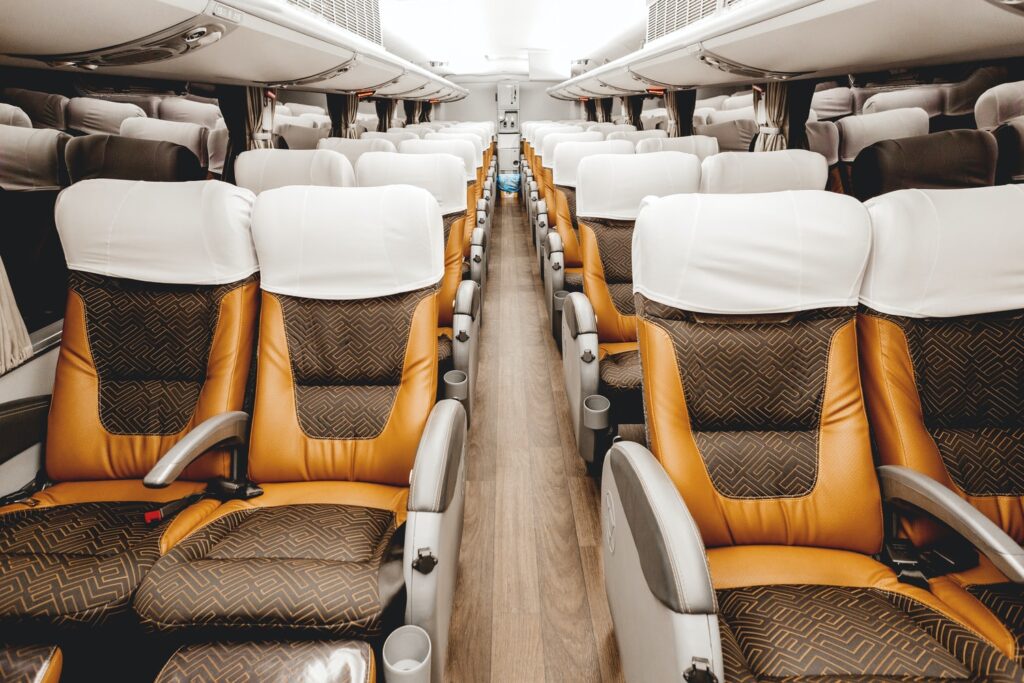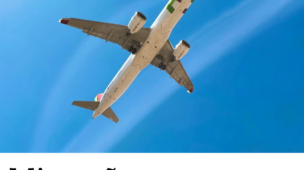The 2014 FIFA World Cup is approaching, and Brazil, the country that will host this great event, will attract travelers from all over the world, as well as the Brazilians themselves that may also travel throughout the country in order to attend the games, which will be held in the stadiums of the cities of São Paulo, Rio de Janeiro, Belo Horizonte, Brasília, Fortaleza, Porto Alegre, Curitiba, Salvador, Recife, Cuiabá, Natal and Manaus.
Thus, it is important to highlight the main lines of attention to keep in mind when preparing your trip, in order to know to whom you can resort should something go wrong.
In Brazil, both the Foundation for Consumer Protection and Defense (PROCON – [Fundação de Proteção e Defesa ao Consumidor]) and the National Civil Aviation Agency (ANAC – [Agência Nacional de Aviação Civil]) are responsible for receiving complaints or charges from traveling consumers.

Should any problems occur with the airline, it is important to know that the airline ticket is a transport contract between the company and the passenger. A consumer relationship is therefore established that must comply with the Code of Consumer Protection.
If the airline does not comply with these consumer rights, the traveler can file a complaint. For instance, if the flight is canceled, you should immediately be reallocated to another flight. Alternatively, you can renounce from the trip and ask for a full refund of your ticket in accordance with the form of payment that has been used, with the additional possibility to file a complaint if you feel disadvantaged.
However, in the event of a canceled or delayed flight coming from another country, even if the airline company is Brazilian, you need to consult local regulations to know how to proceed in terms of accommodation, reimbursement and customer care.
Loss of luggage should be communicated directly to the employee in the arrivals hall. Note that each passenger may declare the values assigned to their luggage before boarding, as well as pay an additional fee (insurance) stipulated by the airline company. In this case, the passenger will receive the declared and accepted value by the company, however, under these terms the company has the right to verify the contents of the luggage.

In the event of malfunction, damage or theft, travelers should immediately seek an airline representative in the arrivals hall, and fill out the Baggage Irregularity Registration (RIB – [Registro de Irregularidade de Bagagem]). The luggage can be considered as lost for a maximum period of 30 days. After this period, the airline has to compensate the traveler. If the luggage is found, it should be sent to the address that has been informed in the RIB.
When traveling via overland interstate transportation, it is important to keep both ticket and luggage receipt, since these constitute the guarantee in case of injury. In the event of luggage loss or damage to the luggage, you will be entitled to compensation by the bus company.
That being said, some caution is necessary regarding this type of transportation: always attach a tag to your luggage with your name, phone number and address (both origin and destination), inside and outside of your bag or suitcase. However, personal documents, valuables and devices for personal use (such as radios, laptops and mobile phones) should always be part of your hand luggage.
When traveling by bus, you are automatically covered by the Compulsory Insurance Against Personal Injury Caused by Motor Vehicles on Land Routes (DPVAT – [Seguro Obrigatório Contra Danos Pessoais Causados por Veículos Automotores de Vias Terrestres]) and by Insurance against Civil Liability [Seguro de Responsabilidade Civil]. Meanwhile, it is advisable to have a personal and baggage insurance and to verify whether the land transportation company that you are using is credible, having all the necessary permits for passenger transport.

If you renounce from your land trip, you can have a refund or have your ticket revalidated, replacing it by a trip on another day or time, provided that you communicate this change to the bus company within at least three hours before the departure time and that, whenever possible, you make a written statement, demanding confirmation of receipt by the company.
Furthermore, it is important to stress that the carrier is responsible for the comfort and safety of its passengers, from departure to the final destination, efficiently and adequately accounting for any personal or material damage. Thus, if the journey has been performed in inferior conditions to the ones that were contracted, you may demand a refund of the ticket price difference.
Finally, be aware of all conditions that transport companies may offer, whether for air or ground travel. And should some misfortune occur while using their services, look for help and make sure your rights are respected.
For more information on where to file your claim, to get tips on how to avoid losses or regrets during your trip, please consult the sites of ANAC and PROCON, as well as the official site of the 2014 World Cup, which offers insights into each host city.
http://www.portaldoconsumidor.gov.br
(Vanessa C. Bueno)
vanessa@odireitosemfronteiras.com
* Translation of: Direitos do Viajante no Brasil
[*Image source: Unsplash]







